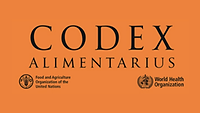BIZTRACKS
FAO, Mars Enter Agreement to Promote Adoption of Codex Standards, Tackle Mycotoxins in Corn

Image credit: Cytonn Photography via Unsplash
The Food and Agriculture Organization of the United Nations (FAO) and Mars Inc. have entered a Memorandum of Understanding (MoU) to promote better global understanding and application of Codex Alimentarius international food safety standards. The MOU was signed by Maximo Torero, FAO Chief Economist, and Abigail Stevenson, Ph.D., Chief Science Officer for Mars.
Specifically, FAO and Mars have committed to work on enhancing mycotoxin management in corn value chains through modeling approaches, and to strengthen information-sharing on emerging food safety threats. Through the MoU, the two parties are forging a path to expand their existing cooperation on strengthening food safety, supporting One Health efforts, and enhancing the FAO Hand-in-Hand Initiative.
Through the agreement, FAO and Mars will exchange knowledge and information to support science-based decision-making on food safety. The MoU lays out plans for FAO and Mars to cooperate on developing guidance for increased uptake of Codex standards and codes of practices by industry; for example, the two parties will work on guidance for food business operators regarding food allergen management, and to identify best practices for mycotoxin control and mitigation in the corn supply chain. FAO and Mars will also continue to collaborate on analysis and discussion around emerging food safety issues, new methods and technologies, and trends in research and development that could impact food safety.
The MoU has been developed within the context of the FAO Strategy for the Private Sector Engagement (2021-2025), which outlines how private sector partnerships can provide innovative tools, resources, knowledge, and technologies that are critical for reinforcing FAO’s real-world impact.
FAO and Mars share common objectives when it comes to strengthening food safety and enhancing food security through capacity building, information-sharing, and developing innovative, science-based approaches. FAO has a long-standing relationship with Mars; for example, through previous agreements, both partners have worked together to address antimicrobial resistance (AMR) in the food supply chain.
Looking for a reprint of this article?
From high-res PDFs to custom plaques, order your copy today!







